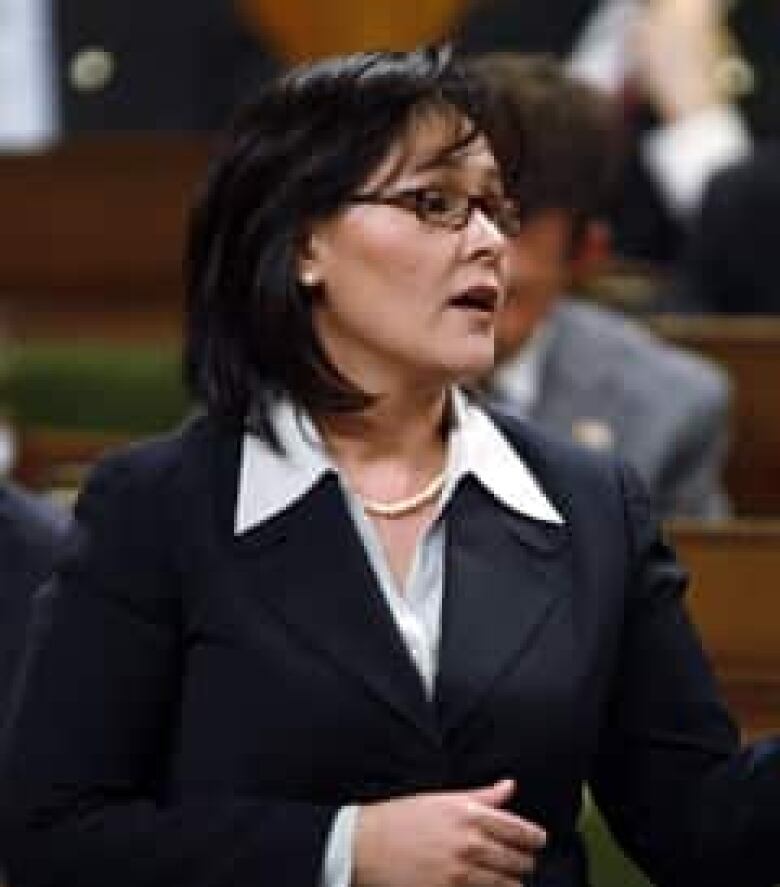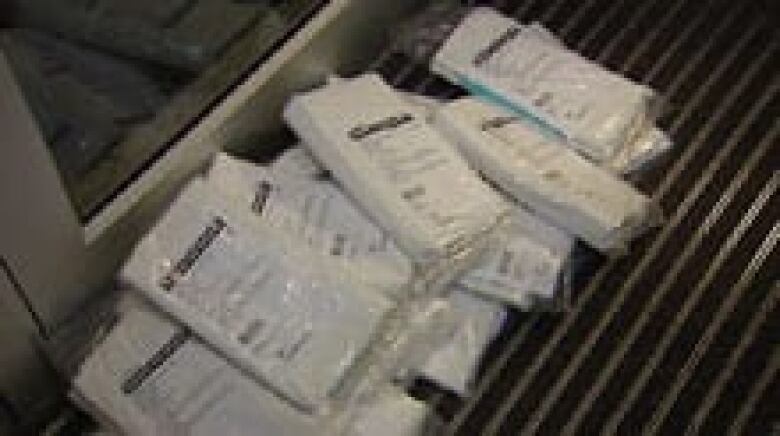Body bag probe found no 'ill will': Aglukkaq

An investigation into the recent shipment of body bags to remote First Nations communities has found Health Canada made a "clear overestimation" of the need in some cases, Health Minister Leona Aglukkaq said Wednesday.
The probe, conducted by a deputy minister in the federal department, centred on the Wasagamack First Nation in northern Manitoba, which was shocked whenabout 30 body bags arrived in September,along with a shipment of hand sanitizer and face masks.
Remote aboriginal communities are thought to be at greater risk of contracting serious cases of H1N1, commonly known as swine flu, because residents have built up less immunity to viruses circulating in more densely populated areas.
Aglukkaq said during a briefing Wednesday that so many bags were shipped to Wasagamack because the nursing station there had sent an estimate of what it needed and Health Canada officials did not question the estimate.
"The nurses in these isolated communities are required to deliver primary health care, emergency care around the clock, and act as community liaison for Health Canada," she said. "These nurses live in their communities, and they are in the best position to assess the needs for medical supplies in their community and their nursing stations.

"In his investigation, the deputy minister found that the order for Wasagamack was disproportionately high compared with other First Nations. It was a clear overestimation and no evidence of ill will ordeliberate calculation."
"The repeated message given to nurses from senior levels down was to 'order big,"' the report says.
The nurse in charge for the Wasagamack First Nation in northern Manitoba ordered 100 body bags in August, the investigation found.
Only 38 bags were actually delivered. But that was still more than other nursing stations on reserves, which typically stock 10 bags or less.
The nurse told Health Canada she ordered so many body bags because it's difficult to get supplies to the remote community of 1,750 people. Shipments come by airplane and boat in the summer, and by airplane and all-terrain vehicle in the winter.
When ice forms in the fall and breaks up in the spring, supplies are flown in by helicopter. It can take up to four trips to get all the supplies there and that's if the weather's good.
Most people in Wasagamack are under 25 a demographic shown to be susceptible to swine flu.
The Health Canada report also found "significant numbers" of children, youth and pregnant women on the reserve. Those groups are at greater risk of complications from the virus.
Besides Wasagamack, five orders for body bags were placed by other Manitoba nursing stations in August and September, the investigation found.
But the department's records show all of those orders were on back-order and nothing wasshipped.
Tense relations
The sight of body bags on reserves strained already tense relations between Ottawa and aboriginal communities, which were hard hit by swine flu in the spring. More than a third of Manitoba's 891 confirmed cases of swine flu involve aboriginals living on or off reserve.
Some interpreted the bags as a prediction from Ottawa that many in those same communities would not survive a second wave of H1N1, if and when it comes.
Aglukkaq said Health Canada will change its procurement procedures as a result of the incident.
Earlier, Jim Wolfe, Health Canada's director of First Nations and Inuit Health for Manitoba, had accepted responsibility for the overshipment, saying nursing stations in communities that can be cut off by severe winter weather had been asked to stock up on three orfour months' worthofsuppliesin case of anH1N1 outbreak.
Chief scorns report
David Harper, Grand Chief of the Manitoba Keewatinowi Okimakanak (MKO), an organization that represents most First Nations communities in northern Manitoba, said the report plays down the incident.
Healso deniedstatements made inthe report that body bags were sent to only one community. He saidthe bags also arrived in God's River First Nation.
"Nobody's blown this thing out of proportion," he said about theFirst Nations' frustration over theincident. "It happened. We're still asking for [flu kit] resources. We're still being denied those resources."
Oliver Okemow, chief of God's River First Nation, said he couldn't believe it when he read the report. He said 20 bags were shipped to his band's nursing station.
"They're not telling the truth at all and whoever did that investigation did not contact the right the right people," he said, adding that Health Canada should have hired an independent investigator.
Time to move on
Ron Evans, head of the Assembly of Manitoba Chiefs, said while some of the facts may still be in dispute, it's time to move on.
"We don't want to make it political. It should be about the people getting the communities ready for the pandemic and that's where we'd like to leave it. That's where we'd like to keep it.
"It was a communication breakdown more than anything else," he added. "It all boiled down to not enough communication and co-ordination."
But he agreed with Harper that the federal government is still not doing enough to deal with a possible resurgence of the H1N1 pandemic on reserves.
With files from The Canadian Press












_(720p).jpg)


 OFFICIAL HD MUSIC VIDEO.jpg)
.jpg)



























































































